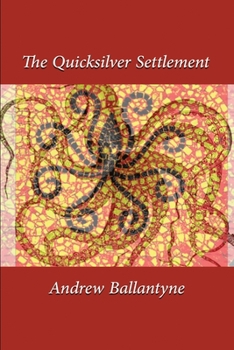The Quicksilver Settlement
Trauma, resistance and subterfuge in a depopulated village on Crete.
Operation Quicksilver was the name the Allies gave to their unsuccessful resistance to the Nazi invasion of Crete.
In the 1950s Luke Zimbrean thinks he can make a name for himself by excavating a Bronze-Age settlement. He thinks his money will see him through, but things get complicated. There are questions to answer, deals to be done, and emotional entanglements to tie him to the place - a place mainly run by women, who have a decisive say. He finds ways to get people to help him, especially Alexander Ziros, who belongs to the village but escaped the massacre and finds his way to live in the world that opens up to him..
In the 1980s the settlement is being excavated by people from outside the village, who hardly engage with the people who live there. The exception is Ian Bell, who comes to draw some plans, and eventually understands what's been going on.
The characters' stories are interwoven across four decades, and we see the village transformed from peasant subsistence to becoming a place with electricity, plumbing and international commerce - some of it legitimate.
Things keep coming to light, but some things also remain hidden. There is clandestine behaviour, some queer sex some travel, some thefts, loss, grief, redemption and healing.





